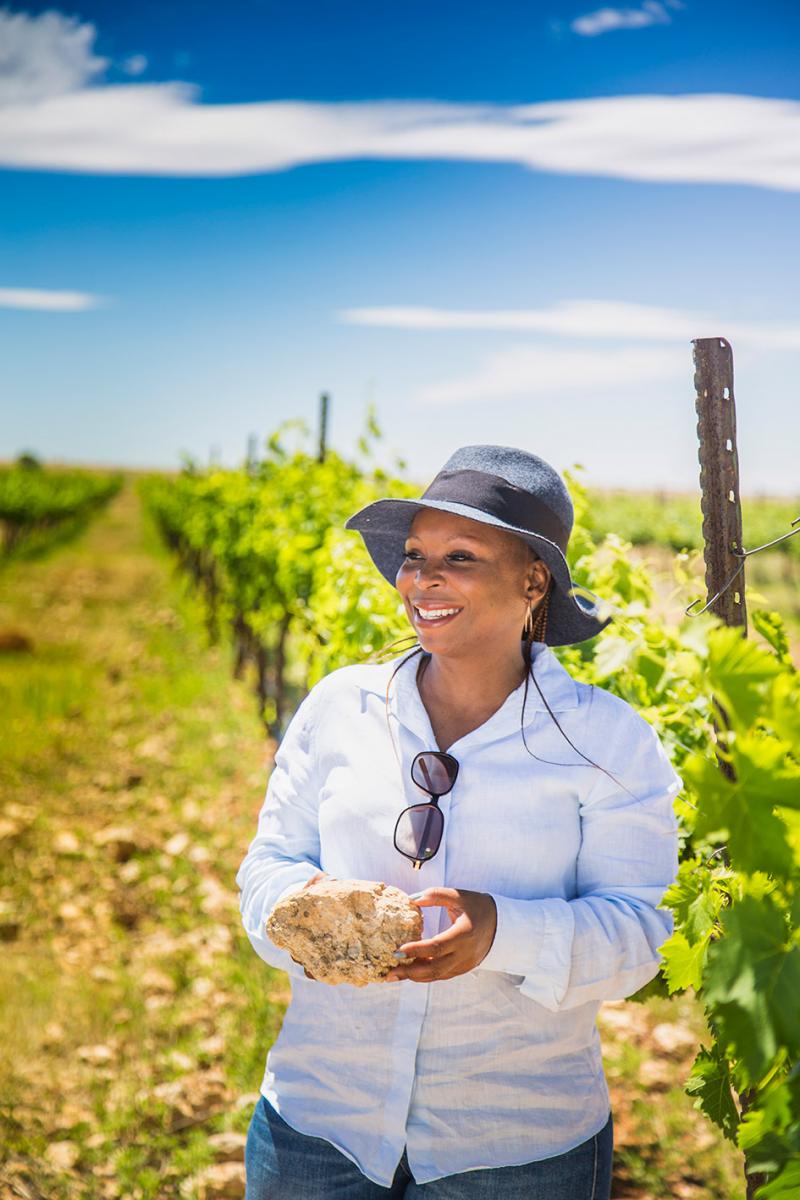Free State’s fired-up female winemaker
Free State’s fired-up female winemaker UrsulaIn just seven years, a determined woman has transformed a somewhat neglected vineyard into a thriving one and has proudly introduced her own wine label. 
Farmer and businesswoman Tebogo Ditsebe from Jacobsdal in the Free State always had a passion for farming, but she never thought she would one day own a vineyard and a wine label, Botebo Wines.
Botebo means ‘depth’ and refers to the rich and deep soil of the Free State, which makes it suitable for all sorts of farming.
Ditsebe said she was approached by a farmer in the area to buy his farm, as he had noticed her passion and love for farming. She then approached the Department of Rural Development and Land Reform for funding assistance.
“I used to own a consultancy training firm, which was not doing well. So when the opportunity to buy a farm came along, I didn’t hesitate,” she said.
Ditsebe did her homework thoroughly, spending two years in the Cape learning the ins and outs of winemaking.
“Although funding is a big hurdle for emerging farmers because of the huge financial capital needed, the experience has been exciting,” said Ditsebe, reiterating that she would not change her current life situation for anything.
Her greatest achievement has been managing and running the farm on her own and her most precious achievement is establishing the Botebo Wine label, which produces rosé, sparkling, cabernet sauvignon, merlot and chenin blanc wines.
Ditsebe received Recapitalisation and Development Programme funding from the Department of Rural Development and Land Reform, which assisted her with infrastructure development. She was also the 2018 overall winner of the Agro-Processing Funding Programme run by the Free State Department of Economic, Small Business Development, Tourism and Environmental Affairs and was awarded R450 000 worth of equipment.
Ditsebe is proud that her business is now able to sustain itself. The farm has three permanent employees and employs between 30 and 50 seasonal workers during pruning, harvesting and weeding seasons.
She plans to employ more people, expand the vineyard, which is currently 48 hectares, and intensify agro-processing.
“Any business requires patience and passion,” she concluded.